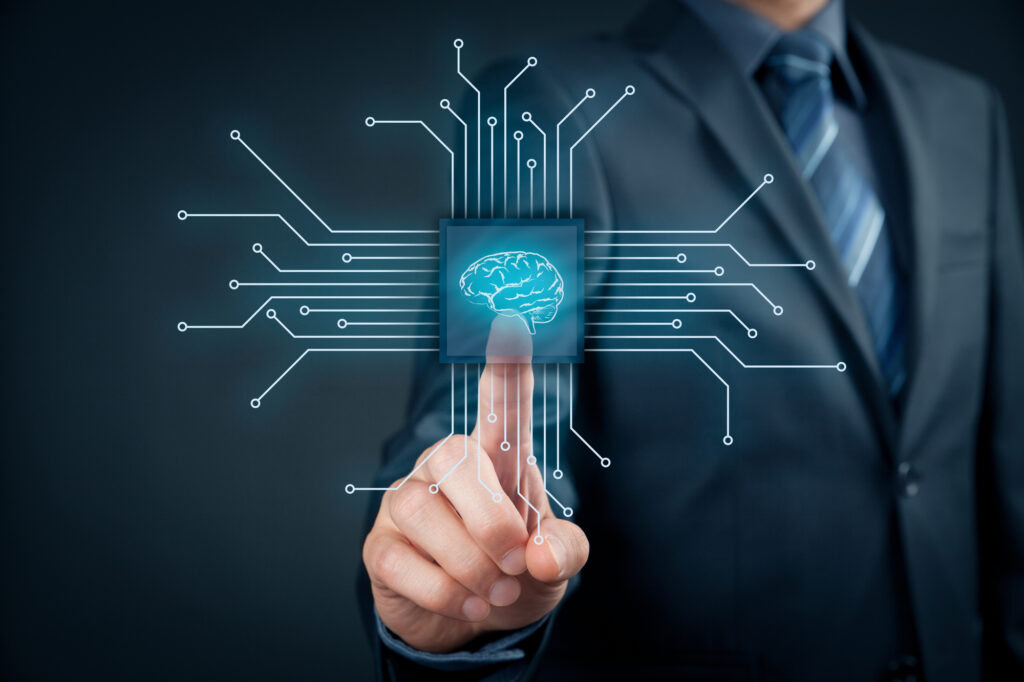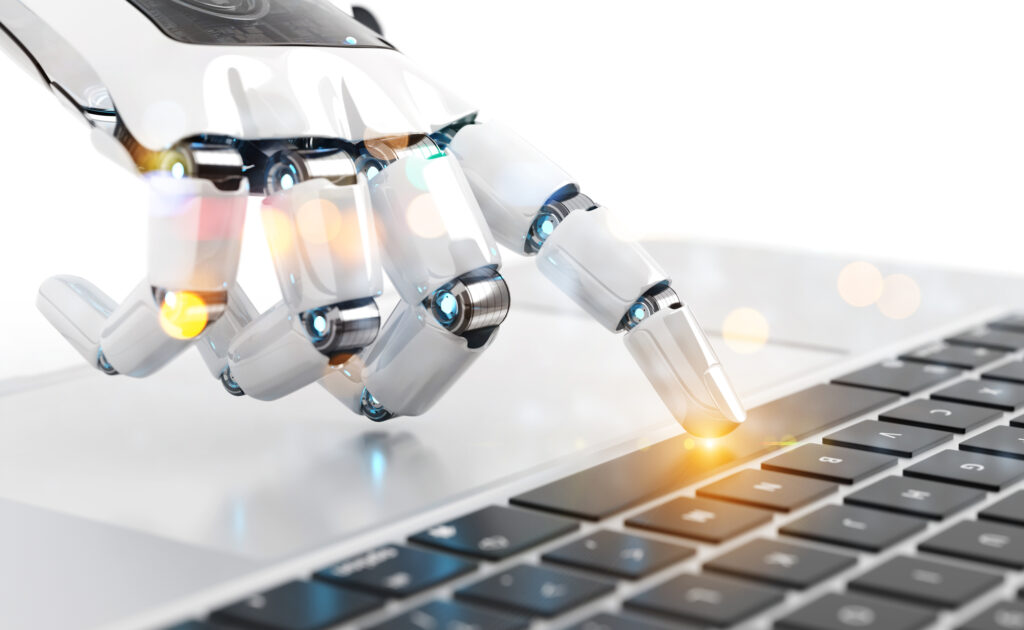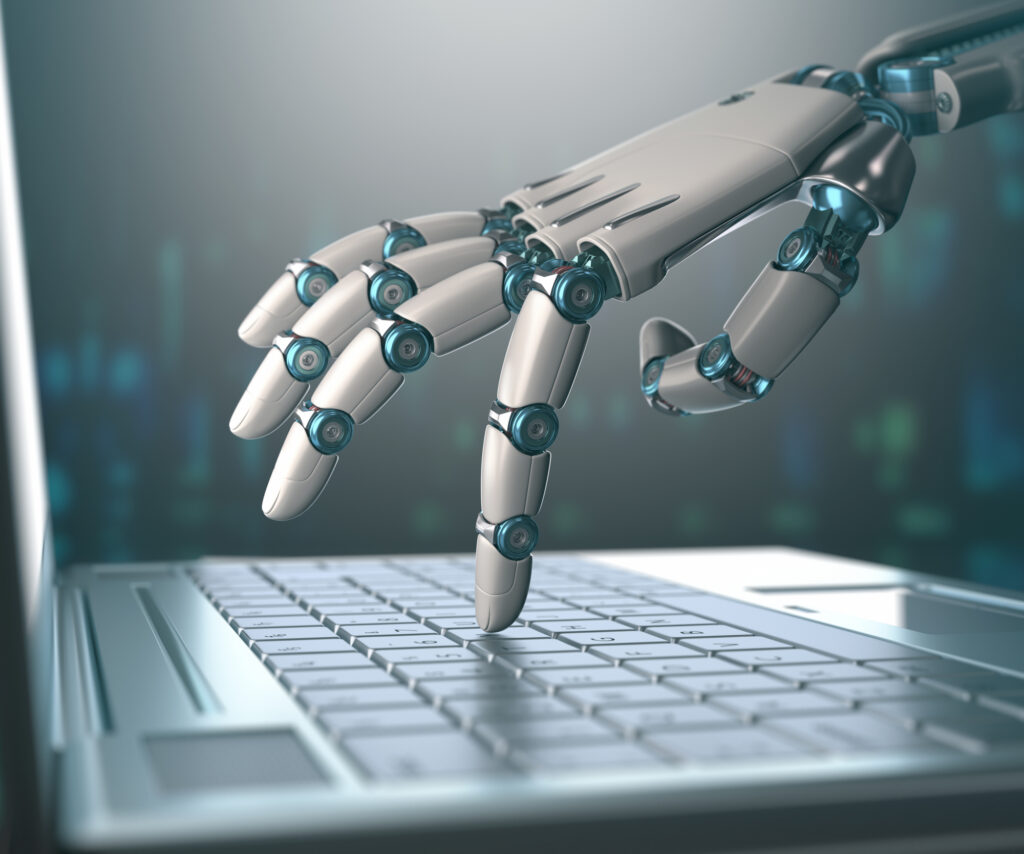ChatGPT is now in the chatroom, and the conversation about artificial intelligence (AI), marketing, and social media has resurged.
What is AI Marketing?
AI marketing is the use of artificial intelligence by marketers to gain insights about their customers and create better content. AI-guided marketing assets are optimized and personalized for the customer’s journey. It can be in the form of chatbots or targeted advertising.
AI can be used in marketing to collect data, analyze customer behavior, and help businesses achieve their goals. AI can reach out to your customers who perform a certain behavior on your site, such as clicking a button or liking a social media post.
AI software and tools can be used by marketers to automate responses for their customers. AI marketing can be used for data analysis and media buying as well as content generation, personalization, and more. Let’s now dive into how marketers use AI.

How do marketers use AI?
AI is a rapidly growing industry that has been the subject of discussion for more than a decade. There was a 27 percent increase reported in the implementation of AI or machine learning into marketing tools.
The top 3 reported uses of AI in marketing are content personalization, customer insight, and predictive analytics. We’ll explore some of the uses for AI in marketing below.
Why AI Marketing?
1. Content Personalization
Personalizing content is one way to utilize AI in marketing. AI can alter the experience of a customer based on their online activity or whether they have filled out a contact form.
Dynamic content, for example, changes depending on the users — their name or occupation, their online behavior, etc. AI analyses a user’s online behavior and provides a more personalized experience, such as web pages, emails, and social media posts.
6Sense uses AI to sort through intent data. Then you can understand which audience members are looking to purchase something so that you can tailor your marketing.
2. Data Analytics
Data analytics is a major use of AI in the marketing world. AI can gather and analyze large amounts of marketing data and summarise the results.
AI can predict marketing campaign outcomes by using historical data such as time spent on a page, purchase metrics, email openings, and other metrics.
You can save time by strategizing your marketing campaigns and creating assets.
3. Content Generation
AI can be used to generate content. It can be used to create captions, emails, social media posts, and blog content.
We’ve seen how AI can create articles when given the subject. It’s still important to remember that the majority of AI-generated content doesn’t have a ready publication date.
Today, most marketers use AI-generated content to generate articles and recommend content. Then they edit, fact-check, and adjust AI’s written material to sound more human.
To get you started, the best way to use AI for content creation is to start small. Marketers who use AI insights to produce content faster create the best-quality content.

4. Media Buying
Media buying is another way AI can be used in marketing. The AI technology predicts the best ad placements and media to maximize ROI and reach your target audience.
Use AI software designed to assist your media team in implementing this tactic. Pattern89, for example, is an example. This AI marketing tool gives you recommendations for your ad spending and allows you to target the correct audience to improve performance.
If you already use Google Ads you are already using the AI to help with the auctioning process.
5. Chatbots
Chatbots are a popular way to use AI in marketing. Created with Natural Language Processing (NLP) chatbots can help customers solve problems, nurture leads, answer questions repeatedly, and much more.
A chatbot personalizes the customer’s journey at the point when they are consuming marketing material. This tool can answer questions from customers.
Look at Drift. The company’s chatbot has been trained to answer questions even if they are not on a pre-programmed route. The user can still receive an answer if they have a question that is not pre-programmed.
Want to learn more about how AI-powered chatbots answer questions from customers? Kobe Digital can help. This course explains how AI-powered chatbots differ from rule-based chatbots.
6. Automated Email Campaigns
Automated email campaigns have also been around for years. AI can be used to create more engaging content for your emails and understand the behavior of your email list.
Your marketers must focus more on creating successful campaigns and less time researching. Automated email marketing software is becoming more and more important as AI improves.
7. Forecasting Sales
AI can be used to predict sales.
You might think this has more to do about sales than marketing. AI can be used to help marketers predict the outcome of their marketing campaigns and assets.
This information can be used to help marketers create better campaigns and increase sales.

8. Improve Customer Experience
AI can assist marketers in delivering the best customer experience to their visitors, converting them into leads.
AI can increase customer loyalty and retention, as well as delight customers with personalized content.
9. You can also find out more about SEO by clicking here.
The ability to optimize content to search engines is one of the biggest advantages AI can offer SEO. AI algorithms can track competitor activity, analyze website traffic and identify keywords to improve search engine rankings.
Using AI-powered tools allows marketers to learn more about their audience’s preferences and tailor their content accordingly.
Kobe Digital has more information on how AI can affect your SEO efforts. The Keywords Research for SEO Course contains information about how search engines use AI to suggest similar searches based on keywords.
AI Marketing Examples
You might ask, “How does it look in practice?”Let’s take a look at some real-world examples of how large media companies have implemented AI in their marketing.
1. Netflix
You know that if you are in marketing you need to send the right message at the right moment to the correct person. Netflix does this with AI. How?
In a Netflix Technology Blog, the company explains that it uses viewing history to determine artwork for movies and TV shows recommended.
If you watch a lot of movies by a particular actor, they may recommend another film they are in. If the artwork does not feature the actor in the movie, you might click away. When the movie is recommended for this viewer, then the artwork will feature that actor.
Maybe a viewer prefers comedies to romances. Netflix may change the artwork of a film to highlight comedic or romantic scenes.
Take a look at the artwork Netflix uses to recommend Good Will Hunting to someone who enjoys romance films compared to the artwork used to recommend it to someone who likes comedies.
Why does Netflix do that? The goal of this is to improve customer experience and increase conversion rates.

2. Spotify
Spotify takes a similar approach to Netflix. The company will use AI to better understand the user’s music preferences, podcast favorites, and purchase history. It will also look at brand interactions, location, and other factors.
Personalized playlists and personalized recommendations are then curated for every user.
The personalization of content has allowed major media companies, like Spotify, to become the top streaming platforms. Personalization does not stop there.
Spotify will also automate the sending of personalized email marketing messages.
What is the goal? Create automated marketing assets and messages that will convert users because they are specific to the user.

3. Amazon
Forecasting sales and analyzing data are two of the most important uses for AI in marketing. Amazon does just that.
Amazon has a section called Recommended Products that uses predictive analytics to determine whether a customer will be likely to purchase a product.
The marketing team at Amazon can then decide which products to put in front of certain customers. They can also predict the success of a product based on their product campaigns.
This type of AI can help increase conversions, improve the customer experience, and measure overall success and ROI for various marketing campaigns.

AI Marketing: Pros and cons
So far, we’ve discussed a lot of topics including how AI marketing works in the real world. Is this something that you should implement in your company?
AI Marketing Advantages
1. Increase your ROI.
The main purpose of AI marketing, as you can see in the examples above is to improve ROI and create campaigns that are easier to track.
AI can provide data analytics that will help you improve your marketing campaigns and produce better assets.
Your marketing team will be able to save time and money by working more efficiently. Profits will also increase.
2. Improve customer relations
AI can also improve your customer relationship.
The deeper the relationship you have with your customers and the more personalized the recommendations, the greater the likelihood that they will become repeat buyers. AI can personalize content and marketing assets in real-time.
AI can also identify customers who are at risk of leaving your business and place them in an automated campaign to encourage them to return.
3. Take better strategic marketing decisions.
AI is gaining popularity in marketing. This will allow marketers to make more strategic decisions. Scaling is more important than ever as your marketing team and company grow.
AI helps you scale your business by analyzing, predicting, and creating marketing assets that sell.
AI Marketing Disadvantages
1. Content quality.
You’ll see a decrease in quality if you use AI to create content without a human editor. AI’s success is dependent on accurate, timely data of high quality.
AI without a human editor can produce content that is inaccurate, biased, or has a tone different from your brand. AI needs human oversight to prevent these mistakes.
2. Privacy.
Customers are becoming more concerned about privacy as marketing assets become more personalized. Some of these AI techniques use cookies and past internet behavior to predict future sales.
You’ll want to make sure that your marketing team complies with privacy laws such as GDPR.
3. Evaluation of non-quantifiable key performance indicators.
Some KPIs cannot be quantified.
Certain metrics are easy to measure, while others, such as improving customer satisfaction, brand awareness, or reputation, will be more difficult. It’s crucial to use the right tools for measuring.
AI Marketing Strategies
AI is used in many marketing strategies. Think about whether you or your team can benefit from any (or all of) these strategies. These strategies include:
- Content Marketing. AI can be used to help your team create more content faster. Personalization Software could be the solution your brand is looking for.
- Product Marketing. By tracking customer behavior, AI can make suggestions for customers as well as predict purchases. While you are busy with other tasks, AI can help keep your brand in front of customers’ minds.
- Email Marketing. AI helps you create lead-nurturing marketing emails, and analyzes past email behavior and performance. It can send automated emails based on customer behavior, and flag emails that need to be worked on.
- Advertising. The AI will take care of purchasing media ads.
AI can help you and your team improve their performance. The human element will always be present in the process.
Alongside AI content, critical thinking skills are also important. To empower your team, you need to equip them with the skills to use AI accurately and effectively. Discover the best practices in critical thinking and problem-solving at work.

Harnessing AI’s Power
AI can help marketing teams scale up their operations without breaking the bank. It’s still important to remember the limitations of AI as technology improves.
It is not yet a replacement for marketers. You can use it as a tool to help with several marketing campaigns, and you should.